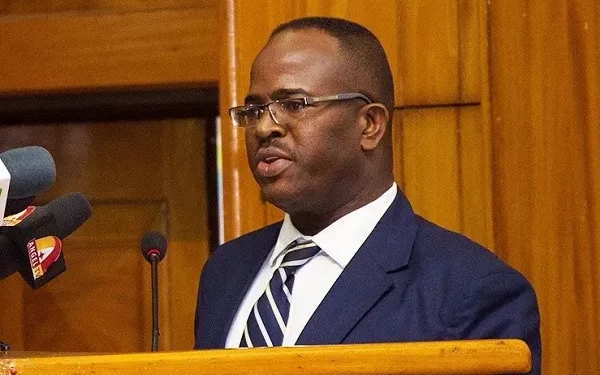Chamber of Mines CEO Calls for Strategic Approach to Mining Reforms
The Chief Executive Officer (CEO) of the Ghana Chamber of Mines, Sulemanu Koney, has urged policymakers and stakeholders to adopt a broader perspective in discussions on mining sector reforms, emphasizing the need to appreciate the full value chain of the industry beyond just fiscal contributions.
Speaking on the NorvanReports and Economic Governance Platform (EGP) X Space discussion on the theme “Gold, Growth, and Ghana’s Future: Rethinking Mining Agreements in Light of the 2025 Budget,” Mr Koney highlighted the significant role the mining industry plays in Ghana’s economy and called for a shift in focus from merely increasing government revenue to leveraging the sector for broader economic transformation.
Understanding the Full Economic Impact
Mr Koney underscored that more than 50% of mineral revenue remains within Ghana through local procurement, employment, and other economic linkages. He noted that in 2023 alone, the industry contributed GHS 11 billion in fiscal revenue, but its impact extends beyond tax payments.
“When more than 50% of mineral revenue goes into local procurement, how many countries can boast of this? The companies benefiting from this are Ghanaians, whether through the supply of consumables, electricity, diesel, or direct employment,” Mr Koney stated. “More than 99% of direct employees in the mining industry are Ghanaians.”
He further emphasized the need to harness mining linkages for industrial growth. “Let’s take advantage of the linkages and go into manufacturing, fabrication, and engineering services. That’s how economies are built,” he added.
Foreign Investment and Policy Predictability
Addressing concerns over foreign dominance in the mining sector, Mr Koney pointed out that attracting foreign direct investment (FDI) has historically been crucial for Ghana’s mining industry. He recalled that in the mid-1980s, Ghana liberalized the sector to attract investment because the country lacked the capital to develop the industry independently.
“The investors coming into Ghana are guests because we have invited them. They come based on specific terms, and we must honor those terms to maintain predictability,” he noted.
He cautioned against sudden policy changes and increased taxes, warning that they could discourage investment and harm the industry’s long-term viability. “If you have a company that is already struggling, and you keep increasing taxes and levies, you make it impossible for them to remain viable,” he said.
Call for Local Investment in Mining
While acknowledging the importance of foreign investment, Mr Koney stressed the need for Ghanaian entrepreneurs to take a more active role in mining ownership and investment. He advocated for local businesses to raise capital for mining projects through platforms like the Stock Exchange, similar to how international companies finance their operations.
“We need to have a rethink. How can we raise capital from within Ghana to develop our mines, just as other countries do?” he questioned.
A Measured Approach to Reform
Mr Koney concluded by calling for a balanced approach to mining reforms, one that ensures Ghana benefits from its resources while maintaining an attractive environment for investors. “We can always ask for more, but we must appreciate what we already have and build on it carefully,” he emphasized.








